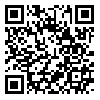BibTeX | RIS | EndNote | Medlars | ProCite | Reference Manager | RefWorks
Send citation to:
URL: http://jrh.gmu.ac.ir/article-1-2779-en.html


 , Rajani Ranganath2
, Rajani Ranganath2 

 , Fatma Ibrahim AlAbduwani3
, Fatma Ibrahim AlAbduwani3 

 , Aafaq Salim AlJahafi3
, Aafaq Salim AlJahafi3 

 , Khulood Adil AlKindy3
, Khulood Adil AlKindy3 

 , Yusra Abid Shah3
, Yusra Abid Shah3 

 , John C. Muthusami4
, John C. Muthusami4 


2- Department of Pathology, College of Medicine and Health Sciences, National University of Science and Technology, Sohar, Oman.
3- College of Medicine and Health Sciences, National University of Science and Technology, Sohar, Oman.
4- Department of Surgery, College of Medicine and Health Sciences, National University of Science and Technology, Sohar, Oman.
Background: Health awareness initiatives for breast cancer focus on secondary prevention. Implementing a systematic online module based on the social constructivism framework increases the efficacy of health education programs. The aim of the present study was to assess the effectiveness of an online peer-led interventional module that was designed on the social constructivism framework, focusing on the knowledge and perception of psychosocial dimensions related to breast cancer.
Methods: A quasi-experimental design was utilized. A convenience sampling technique was employed. A total of 93 female medical students from the College of Medicine and Health Sciences, National University of Science and Technology, Oman, attended a peer-led workshop. The peer-led intervention was evaluated using pre-test, post-test, and feedback questionnaires. The data collected were analyzed using descriptive and inferential statistical methods. Correlation, linear regression, and the Wilcoxon signed rank test were employed to explore associations.
Results: A majority of participants reported that the workshop was interesting (86.7%) and increased their knowledge regarding breast cancer (83.3%). There was a significant improvement in the overall perception of participants regarding the myths of breast cancer after the workshop (95% confidence interval (CI); P<0.001). Post-test scores also show significant differences in participants’ perception of associated psychosocial factors (Z=-3.094; P=0.002). Participants reported that they would prefer peer-led sessions to learn new health-related information (76.7%).
Conclusion: Utilization of the social constructivism framework involving peer-assisted learning provides optimal results for community-based health promotion initiatives. The study indicates the effectiveness of peer-led online training as a successful pathway in health education for young adults.
Received: 2024/10/31 | Accepted: 2025/03/5 | Published: 2025/11/1
| Rights and permissions | |
 |
This work is licensed under a Creative Commons Attribution-NonCommercial 4.0 International License. |






